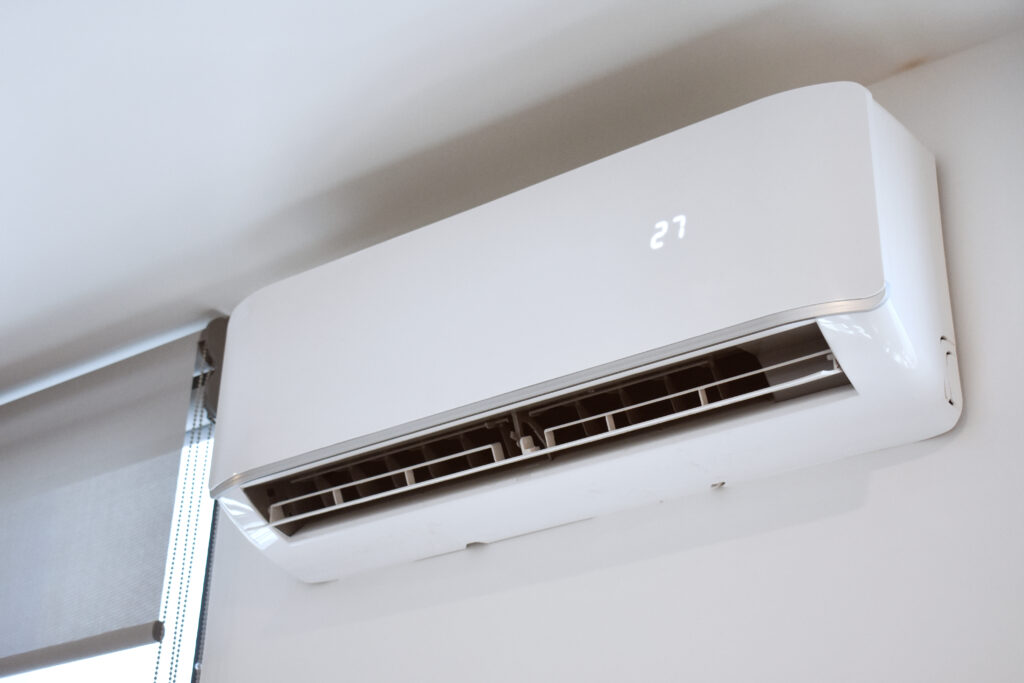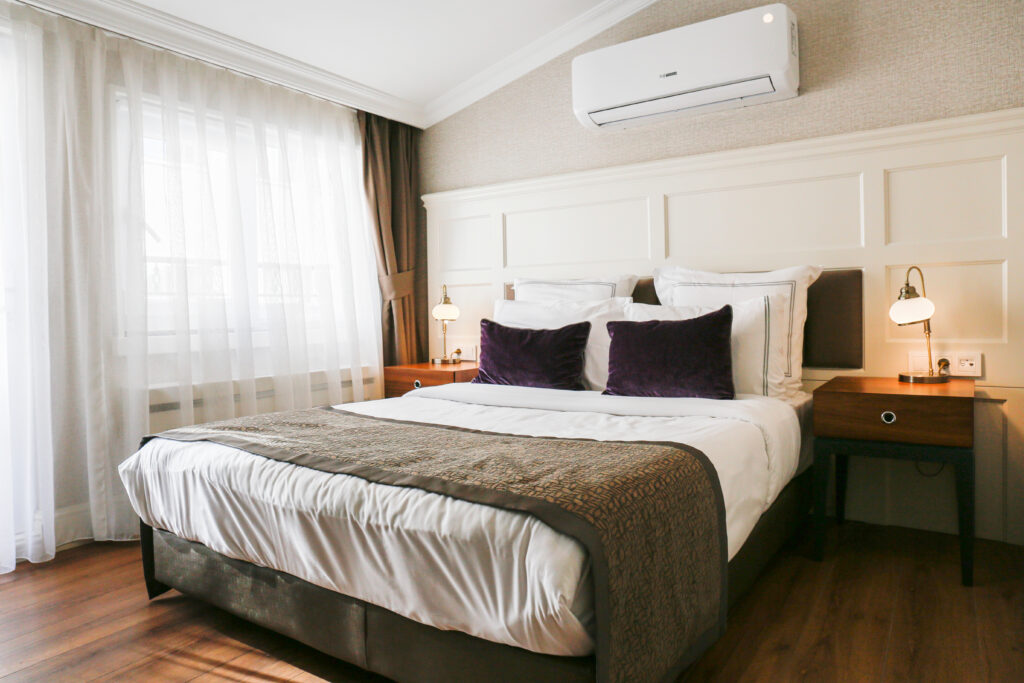- 24/7 Emergency HVAC Repair
- Financing Available
- We Accept All Major Credit Cards
How Many Mini-Split Systems Does My Home Need?

Mini-split systems have become a popular choice among homeowners for efficiently heating and cooling homes. These versatile systems provide excellent temperature control and consume less energy than traditional HVAC systems.
However, determining the right number of units for your home is critical for maximizing mini-split benefits. Consider these factors when calculating how many mini-split systems your home needs so you can stay cozy year-round while minimizing energy waste and costs.
What Are Mini-Split Systems?
Mini-split systems are a type of air conditioner that consists of two primary components: an indoor unit that distributes air and an outdoor compressor unit that powers the system. These systems work without the need for extensive ductwork, making them ideal for homes without existing ducts.
Mini-split systems are a favorite among homeowners because of their efficiency and adaptability. The units available for most rooms offer precise control over the temperature in specific areas of the house. Their small size, quiet operation, and energy efficiency make mini splits a reliable, cost-effective alternative to traditional HVAC systems, particularly for smaller spaces or homes with unique layouts.
Benefits of Mini-Split Systems for Your Home
Switching to mini-split systems offers many advantages over traditional heating and cooling methods. These units are highly energy-efficient, often using less electricity and resulting in lower energy bills. Additionally, mini splits provide zoning capabilities, allowing you to control the temperature in individual rooms or areas. This level of control means no wasted energy on unoccupied spaces.
Another perk is how quiet they are. Also, mini splits blend seamlessly into any room without disturbing your day-to-day activities. Their flexibility in design also allows homeowners to install them in spaces where traditional systems may not be feasible, such as basements or attics.
Factors That Influence the Number of Mini-Split Systems You Need
Deciding how many mini-split systems your home requires means taking a close look at the property’s unique characteristics. The most important factors to consider include:
- Size and layout
- The purpose of each room
- Climate
- The number of rooms
- Unit sizes
- Energy efficiency
Let’s break down each of these important factors in more detail to guide your decision-making.
Room Size and BTU Requirements
British thermal unit (BTU) ratings measure a mini-split system’s cooling or heating capacity. For smaller rooms, a system with 6,000 to 9,000 BTUs may suffice, while medium-sized spaces may need 12,000 to 18,000 BTUs. Larger rooms or open spaces could require 24,000 BTUs or more.
Using a BTU calculator will help you determine the most accurate requirements for each room. Matching the system’s capacity to the room size paves the way for efficient operation by preventing energy waste and limiting underperformance.

Open Floor Plans vs. Partitioned Spaces
Open floor plans often pose a unique challenge when it comes to cooling and heating. With fewer partitions to contain airflow, a single mini-split system might struggle to maintain consistent temperatures. On the other hand, partitioned spaces with more defined rooms allow systems to focus on specific areas, making them more effective.
Homeowners with open-concept spaces may need a higher-capacity unit or additional systems to cover the entire area. Proper installation and placement also affect how well a ductless unit functions in these spaces, as air circulation may be freer or limited.
Climate and Mini-Split System Needs
Homes in Philadelphia, PA, might require additional systems or higher-capacity units to maintain comfort levels. During harsh winters, when temperatures reach single digits, your home will benefit from a mini split with advanced heating capabilities.
Conversely, in hotter summers, when temperatures reach 85 degrees Fahrenheit or higher, you may want to upgrade to a higher BTU rating to combat soaring temperatures. Gauging expectations of the season’s temperatures will help you decide your home’s HVAC needs and how many mini-split systems are necessary for a comfortable setting.
Multiple Zones, Multiple Units
One of the standout features of mini-split systems is their zoning capabilities. A multi-zone system allows you to connect several indoor units to a single outdoor compressor, offering separate temperature controls for each “zone.”
For example, bedrooms, living rooms, and kitchen areas each have their unit for tailored comfort that avoids energy waste. If your home has several frequently used areas, a multi-zone system could be more practical than individual single-zone units for each space.
Energy Efficiency Considerations
An appropriately sized mini-split system is essential for boosting energy efficiency. Oversized systems may cycle on and off too frequently, wasting energy and leading to higher utility bills. Undersized systems, on the other hand, might struggle to meet your temperature requirements, working harder and consuming more power in the process. Choose systems that are just the right size for each room to minimize energy waste and maximize performance.

Common Areas vs. Private Spaces
When deciding where to install mini-split systems, think about the purpose of each room. Common areas like living rooms and kitchens see frequent use and typically benefit from dedicated systems to maintain comfort.
Meanwhile, private spaces such as bedrooms may need individualized systems for nighttime temperature control. Strategically prioritizing high-use areas promotes comfort for the entire household while managing installation and operating costs.
Do I Need a Ductless Unit in Every Room of the House?
While having a mini-split unit in every room sounds ideal, it’s not always necessary or practical. Shared areas like hallways or open spaces may allow one unit to service multiple rooms, especially in homes with good insulation and airflow. However, certain rooms, such as bedrooms, might benefit from individual units to provide customized comfort. Ultimately, the decision depends on your home layout and individual preferences.
Can One Mini Split Cool a Whole House?
While it’s technically possible for one mini-split system to cool an entire house, it largely depends on the home’s size, layout, and insulation. Smaller, well-insulated homes with open floor plans may only need one powerful unit. However, larger or multistory homes are better served by several systems for even, consistent temperature control throughout.
Professional Evaluation and Expert Advice
Determining the right number of mini-split systems for your home is complex. That’s why consulting an HVAC professional is invaluable. The experts at W.F. Smith assess your home’s unique needs, recommend the ideal number and placement of units, and ensure proper ductless mini-split services for maximum efficiency and comfort.
Knowing how many mini-split systems your home needs is key to optimizing its comfort and energy usage. Consider using our expertise to create a tailored solution that meets your needs. Make informed decisions to enjoy the many benefits mini-split systems offer while saving on energy costs.

Great service, very happy. This is our second Lennox unit from them.

